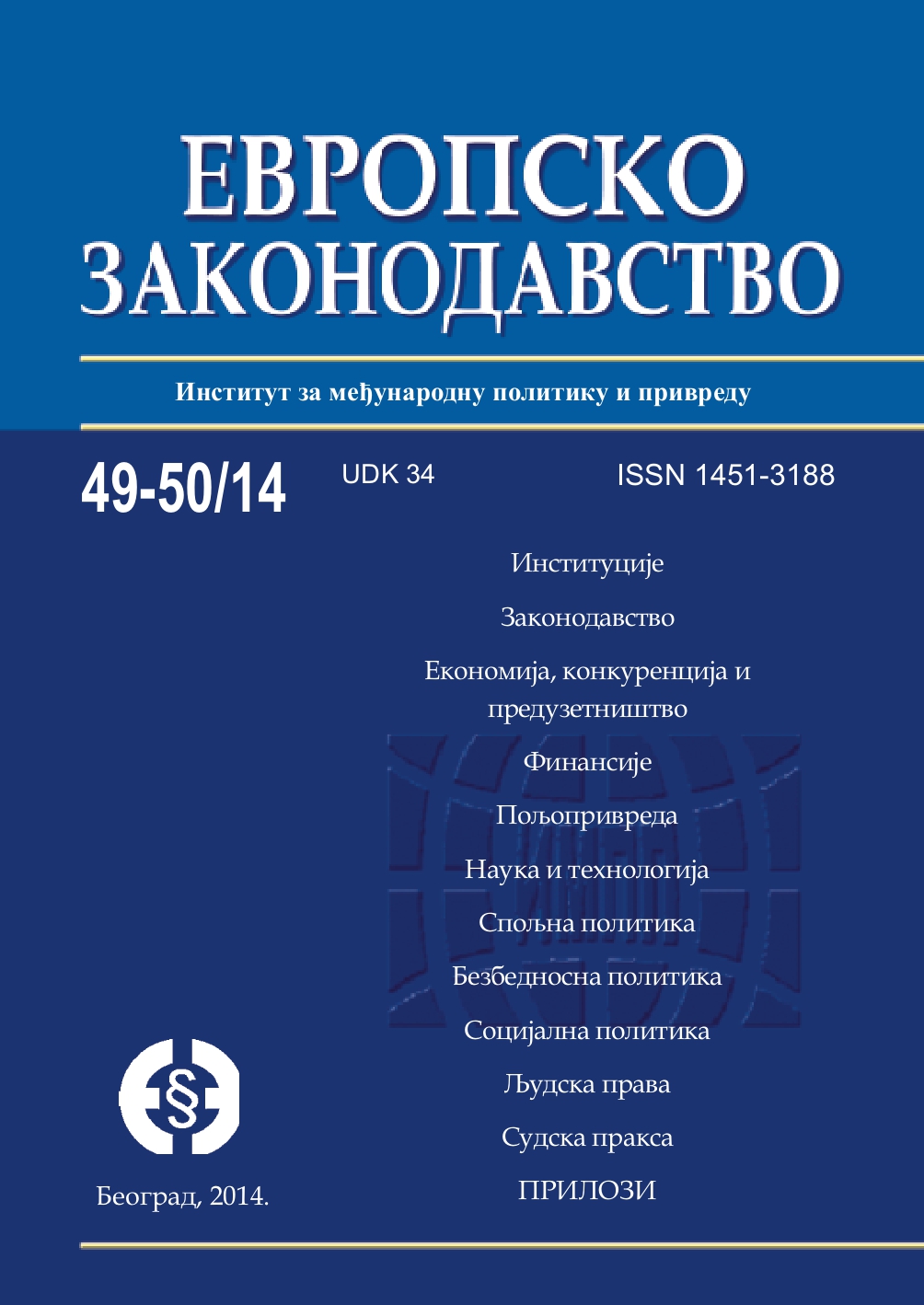Усклађивање спољне политике Републике Србије и Европске уније
Harmonization of the foreign policy of the Republic of Serbia and the European Union
Author(s): Nevena StankovićSubject(s): Politics / Political Sciences, EU-Legislation
Published by: Институт за међународну политику и привреду
Keywords: Republic of Serbia;foreign policy;European Union;Common Foreign and Security Policy
Summary/Abstract: In the process of European integration and in accordance with the European Union enlargement policy states should gradually harmonise their foreign policies with the EU. In the case of the Republic of Serbia we often hear criticism that its foreign policy is not harmonised with the EU and that in this way, it does not sufficiently show willingness to become a “sincere” member of this community, what causes mistrust with its European partners. However, before we accept the thesis that Serbia has not sufficiently harmonised its foreign policy with the EU we should give an answer to the questions what EU foreign policy is at all and to what extent its members states themselves manage to make a compromise in this field. Also, it should be determined in what Serbia's different positions concerning some foreign policy matters differ from any other EU member state when it is not a part of the compromise which is necessary in order to adopt common decisions in the EU foreign policy. The main thesis in this paper is that Serbia harmonises its foreign policy sufficiently not jeopardising its European integration as well as that there is no reason for mistrust with its European partners. The main indicator for such a thesis is the United Nations where Serbia mostly votes like the EU as well as that it joins in imposing sanctions to third states against which the EU does so. The field where Serbia's foreign policy is not harmonised with the EU are its foreign policy priorities and it is not unusual that a state uses its “free” space until it becomes a full member of the EU. In the same way, based on the co-operation between EU member states and PR China, it will turn out that member states cannot adjust their foreign policies towards this country. This argument will show that when they have foreign policy priorities like Serbia EU member states prevent a compromise to be reached as the only way to take an EU foreign policy position.
Journal: Европско законодавство
- Issue Year: 2014
- Issue No: 49-50
- Page Range: 333-346
- Page Count: 14
- Language: Serbian

